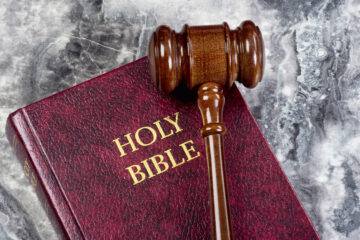Charter schools are a fairly recent phenomenon on the educational landscape in our country. A charter school is a publicly funded school that operates under a contract, or “charter,” with a government entity, such as a school district or state department of education. In exchange for operational freedom and flexibility, charter schools are often subject to higher levels of accountability than traditional public schools. One of the chief benefits to this alternative is that charter schools can offer high-quality education options to communities, especially with historically underserved students. For example, in the big four cities (Nashville, Memphis, Chattanooga, and Knoxville) of Tennessee, the student population of charter schools is 85% minority as opposed to the traditional public schools in these cities which have a minority population of just over 60%.
The charter-school movement is one of the great success stories in American education. Since their introduction in the 1990s, charter schools have risen in popularity. In Tennessee, more and more families are choosing public charter schools over traditional public schools. Every single public charter school with at least one year of data has seen enrollment in growth, while less than 40% of traditional public schools have seen an increase in enrollment.
Should religious schools be allowed to participate in the charter school program? This question recently made its way for the first time to the Supreme Court in a case that arose out of Oklahoma.
The State of Oklahoma operates 30 charter schools serving over 50,000 public-school students. In that landmark case, the Attorney General of the State of Oklahoma sued to cancel the state’s charter with the St. Isidore Catholic School on the basis that the Catholic Archdiocese sought public funds to teach Catholic doctrine in St. Isidore school – a right never sought before in the charter school system. The argument centered around an issue of religious freedom. The school argued that religious schools should not be treated as “second class” and discriminated against merely because they seek to instill religious values in their curriculum. The state’s attorney general, Ghentner Drummond, himself a practicing Christian, led the charge to disqualify the Catholic school’s participation in the charter school program, arguing that the practice would violate the U.S. Constitution’s ban on direct government-sponsored aid to religion.
A charter is, in essence, a contract between a privately-run school and the state. Typically, in a charter school setting, the state imposes greater accountability requirements, but also grants the school broader flexibility in adopting innovative teaching methods or curricular materials. So, the question arises, if a state opens up a charter school program and enters into contracts with private entities, may it say to only religious entities that they need not apply simply because they are religious?
The Oklahoma Supreme Court sided with the Attorney General and ruled that the Establishment Clause of the First Amendment forbid direct state funding to St. Isidore Catholic School. The school appealed this ruling to the Supreme Court, and in a rare ruling, the high court was split 4-4, with Justice Amy Comey Barrett stepping aside to recuse herself. The impact of this deadlock was to affirm the Oklahoma Supreme Court’s ruling.
The attorneys who argued in support of St. Isidore are experienced constitutional lawyers with a group called Alliance Defending Freedom. I had the pleasure of training some ADF attorneys who have become excellent advocates for religious liberty in their own right. According to ADF: “Oklahoma parents and children are better off with more educational choices, not fewer. While the Supreme Court’s order is disappointing for educational freedom, the 4-4 decision does not set precedent, allowing the court to revisit this issue in the future. The U.S. Supreme Court has been clear that when the government creates programs and invites groups to participate, it can’t single out religious groups for exclusion, and we will continue our work to protect this vital freedom for parents and students. We remain proud of our clients, the Oklahoma Statewide Charter School Board, and their brave stand for educational freedom.”
Larry L. Crain












